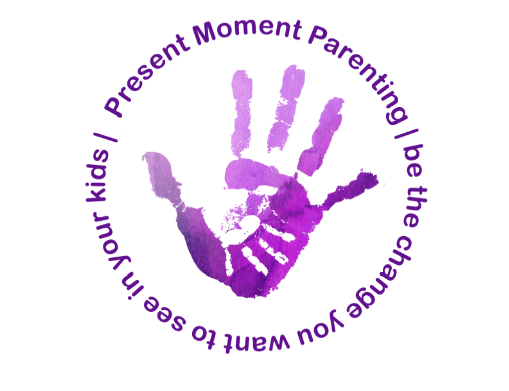
As we head towards the crazy Christmas rush, we often forget, in amongst the cheer and celebration, that this is also the most heightened time for depression.
Having been through many bouts of depression myself, some severe, some more like a lingering sadness, I have found that there are a few basics that need to be in place for you to keep your emotions balanced and to get the most out of your depression. And so I have created a Depression Checklist for myself to ensure that I take the necessary steps to get myself out of the black hole and back into the festivities with my kids.
I hope you will find it useful and keep it handy for the next time that the bad mood fairy comes visiting you or your family!
Having been through many bouts of depression myself, some severe, some more like a lingering sadness, I have found that there are a few basics that need to be in place for you to keep your emotions balanced and to get the most out of your depression. And so I have created a Depression Checklist for myself to ensure that I take the necessary steps to get myself out of the black hole and back into the festivities with my kids.
I hope you will find it useful and keep it handy for the next time that the bad mood fairy comes visiting you or your family!
PHYSICAL
☐ EXERCISE / MOVEMENT: Am I moving / exercising regularly? This doesn’t have to be a major gym session – just a walk round the block, dance in the lounge etc. Even just wearing a step counter helps to make sure that I am keeping the energy flowing. Exercise is the most effective and also the most underutilized antidepressant.
☐ DIET: Am I eating correctly? Am I limiting sugar (including alcohol) and refined carbs? Am I getting enough protein and fats?
Do I have enough variety in my diet to ensure I’m getting everything I need?
Am I drinking enough water? Keeping a 2-litre bottle of water on my desk and finishing it within the day can help to keep track of this simply. There are also fun water apps available.
Is my gut healthy? There is ample evidence that gut health influences emotional and psychological wellbeing. If I feel my digestion is not at 100% I take digestive enzymes and probiotics to balance it out again. If it’s really bad I’ll take L’Gluthamine to heal the gut lining.
Am I supplementing enough? If I’m feeling down I increase my daily dose of Omega 3’s to at least 3 times the recommended dose. I also take Magnesium at night, and high doses of Vitamin D in the morning. Omegas, Magnesium and Vitamin D all support the nervous system to function optimally.
Do I have inflammation in my body? I can tell this by aching joints, allergic reactions, poor digestion etc. I deal with this by cutting down on all grains and legumes, cutting out dairy, eating only grass fed and free-range meats, and drinking turmeric tea.
Are there any possible toxins that I am ingesting? Have I eaten too much tuna or other fish that could have high mercury contents? Are there pesticides on my food? Am I using too much plastic or consuming too many goods that have been wrapped and stored in plastic? Toxic exposure can affect both hormonal and emotional wellbeing.
☐ ILLNESS: Certain illnesses (like flu and migraines) can leave a lingering feeling of depression for a time afterwards. Know that this will pass. Some medications also have depression as a side effect. In this case, speak to your prescribing doctor.
☐ ENERGY LEVELS: Am I tired? Am I getting to bed early enough and sleeping until I am ready to wake up (ie without an alarm). Am I taking sufficient time off? Am I looking after my own needs or only everyone else’s? Do I need a holiday? Can I take a day or two off and have a long weekend?
☐ STRESS LEVELS: Am I actively managing my stress levels? Am I doing some form of meditation or breathing daily? Am I bringing my cortisol levels down with the V position and using the Learning State to calm my system down (sign up for my newsletter for a description of how to use these tools).
☐ HORMONES: Is this a time of the month thing? I keep track of my cycle so that I’m aware of how my mood changes at different times of the month. I also take note of anything that really upsets me when I am pre-menstrual and make a note to work on this during the month when I am calmer. Often the things that come up during PMS are things that we have been ignoring or brushing over the rest of the time.
☐ APPEARANCE: Am I happy with the way I look right now? Do I need a haircut? Do I need to clear out some unsexy clothes or wax my legs or go for a manicure? How we look can affect how we feel – this is why actors do dress rehearsals. Dressing and looking like you’re feeling good often helps to set the scene for actually feeling that way.
EXISTENTIAL
☐ PURPOSE. Am I feeling like I am on track and that I have meaning and purpose in my life? If not, I redo my values worksheet and see what has changed and if I can I tweak what I’m doing to be more in line with my true calling (If you want to learn how to figure out your true values and use these to enhance your purpose in life, join me at the Learning Reimagined conference in Feb where I will be talking about how to do this).
☐ BOREDOM: Am I bored and/or understimulated? Do I need to take a new course or read a new book or anything else to enhance my mental wellbeing? Have I slipped into bad habits of watching series instead of learning new and exciting things?
☐ DAILY GRIND: Have I got caught up in too many trivial daily tasks that are not high priorities and that have me feeling like I’m on the hamster wheel of meaninglessness? See which tasks I can delegate, which I can eliminate, and which I need to link to my highest values so that I can do them with gratitude instead of with resentment.
☐ GOALS: Do I have current inspiring goals and vision? Find one thing to get excited about - put up pictures of it, start working towards it. Take baby steps.
SITUATIONAL / ENVIRONMENT
☐ TRAUMA: Are there any current traumatic events – kids sick, accidents, deaths, financial problems etc? Am I able to work through these things on my own or do I need to seek the help of a friend or professional? I make a list of the benefits of the current situation and how it is helping me to grow / learn / progress / change.
☐ SEASONAL: Is it not my favourite season? Is there anything I can do to make myself more comfortable until the season changes?
☐ SOCIO-POLITICAL: Am I being drawn in by other people’s fears and concerns about the future? Stop watching / listening to the news, focus on nature rather than headline posters, request a change of subject in social situations or point out the positive side.
☐ CLUTTER: Is my environment clutter free and a pleasure to be in? Do I need to clear out old stuff and shift the energy in my space a bit? I know that chaos around me makes it harder for me to feel internally at peace. Even cleaning up a small area or clearing out one drawer or cupboard can make a shift.
☐ MUSIC: What music am I listening to? We tend to listen to music that reflects our mood, but this can also take us further down the spiral. I have a few mixes with uplifting, positive messages and upbeat sounds that I can put on if I need a mood lifter.
☐ TOXINS: Have I recently done any painting? Or changed household products? Or beauty products? Toxins in the environment or in our products can affect our general health and emotional wellbeing.
FAMILY AND FRIENDS
☐ CONNECTION: Do I feel a close connection with the people in my life? Am I spending decent quality time with the people who care about me? Am I getting enough hugs in a day? Do I have someone to talk to who will really listen? Are we all spending too much time behind screens and not enough connecting in person? Make connection a priority.
☐ FUN: Am I having fun with the people around me? Are we doing things together that we enjoy? Or is it all hard work and schedules and no time for spontenaeity?
☐ TIME: Am I feeling like I don’t have time to do the important things in life like connecting with my family? What irrelevant things can I drop from my life that would free up some time? Are there things I can delegate?
☐ WORRIES: Are there specific things that I am worrying about in terms of my family or kids? Are there any action steps that I can take to alleviate some of the concerns?
FAULTY THINKING
☐ ASSUMPTIONS: Am I making false assumptions about the people or situations around me (for example that the mess in the house means that nobody cares about me and what is important to me)? I take time to really examine what I am thinking and believing and if it is really true. I use Byron Katie’s questioning process to get my thinking back in line with reality. (See my articles on Parenting Myths to find some examples on how to use Byron Katie's Work.)
☐ PERFECTIONISM: Am I expecting too much of myself? Am I focusing on failures rather than learnings? Am I being too hard on myself?
☐ FANTASY: Am I focusing on a fantasy of how my life “should” look or how I wish it would be instead of having gratitude for how it is? Keeping a gratitude journal daily goes a long way to making sure I am aware of how wonderful my life really is even if it doesn’t fit the ideal image in my head.
☐ DEPRESSION IS BAD: Do I believe that this depression is bad? Can I see the gifts that it is bringing in helping me to redefine my priorities, delegate tasks I do not enjoy, reassess my life, and make sure that I am healthy and focused on my goals? Can I appreciate that we need down times to help us to grow and to keep us on track? If not, I make a list of the benefits that I am getting from feeling bad and the drawbacks of always feeling good.
I work slowly through this list – making whichever changes I feel I can manage at the time, and adding the others one by one. Every small change helps to lighten the load and gives you the energy to tackle the next thing on the list. The main point is to take some form of action. Doing nothing makes us feel even more hopeless, helpless and out of control. Taking any action helps you to feel empowered.
So start anywhere on the list, but start somewhere. Depression honestly is a gift to make sure that you stay on track in your life and keeping moving onward and upward. It is your barometer to ensure that you can forecast a meaningful and fulfilling life ahead (even if your festive season kinda sucks!).
☐ EXERCISE / MOVEMENT: Am I moving / exercising regularly? This doesn’t have to be a major gym session – just a walk round the block, dance in the lounge etc. Even just wearing a step counter helps to make sure that I am keeping the energy flowing. Exercise is the most effective and also the most underutilized antidepressant.
☐ DIET: Am I eating correctly? Am I limiting sugar (including alcohol) and refined carbs? Am I getting enough protein and fats?
Do I have enough variety in my diet to ensure I’m getting everything I need?
Am I drinking enough water? Keeping a 2-litre bottle of water on my desk and finishing it within the day can help to keep track of this simply. There are also fun water apps available.
Is my gut healthy? There is ample evidence that gut health influences emotional and psychological wellbeing. If I feel my digestion is not at 100% I take digestive enzymes and probiotics to balance it out again. If it’s really bad I’ll take L’Gluthamine to heal the gut lining.
Am I supplementing enough? If I’m feeling down I increase my daily dose of Omega 3’s to at least 3 times the recommended dose. I also take Magnesium at night, and high doses of Vitamin D in the morning. Omegas, Magnesium and Vitamin D all support the nervous system to function optimally.
Do I have inflammation in my body? I can tell this by aching joints, allergic reactions, poor digestion etc. I deal with this by cutting down on all grains and legumes, cutting out dairy, eating only grass fed and free-range meats, and drinking turmeric tea.
Are there any possible toxins that I am ingesting? Have I eaten too much tuna or other fish that could have high mercury contents? Are there pesticides on my food? Am I using too much plastic or consuming too many goods that have been wrapped and stored in plastic? Toxic exposure can affect both hormonal and emotional wellbeing.
☐ ILLNESS: Certain illnesses (like flu and migraines) can leave a lingering feeling of depression for a time afterwards. Know that this will pass. Some medications also have depression as a side effect. In this case, speak to your prescribing doctor.
☐ ENERGY LEVELS: Am I tired? Am I getting to bed early enough and sleeping until I am ready to wake up (ie without an alarm). Am I taking sufficient time off? Am I looking after my own needs or only everyone else’s? Do I need a holiday? Can I take a day or two off and have a long weekend?
☐ STRESS LEVELS: Am I actively managing my stress levels? Am I doing some form of meditation or breathing daily? Am I bringing my cortisol levels down with the V position and using the Learning State to calm my system down (sign up for my newsletter for a description of how to use these tools).
☐ HORMONES: Is this a time of the month thing? I keep track of my cycle so that I’m aware of how my mood changes at different times of the month. I also take note of anything that really upsets me when I am pre-menstrual and make a note to work on this during the month when I am calmer. Often the things that come up during PMS are things that we have been ignoring or brushing over the rest of the time.
☐ APPEARANCE: Am I happy with the way I look right now? Do I need a haircut? Do I need to clear out some unsexy clothes or wax my legs or go for a manicure? How we look can affect how we feel – this is why actors do dress rehearsals. Dressing and looking like you’re feeling good often helps to set the scene for actually feeling that way.
EXISTENTIAL
☐ PURPOSE. Am I feeling like I am on track and that I have meaning and purpose in my life? If not, I redo my values worksheet and see what has changed and if I can I tweak what I’m doing to be more in line with my true calling (If you want to learn how to figure out your true values and use these to enhance your purpose in life, join me at the Learning Reimagined conference in Feb where I will be talking about how to do this).
☐ BOREDOM: Am I bored and/or understimulated? Do I need to take a new course or read a new book or anything else to enhance my mental wellbeing? Have I slipped into bad habits of watching series instead of learning new and exciting things?
☐ DAILY GRIND: Have I got caught up in too many trivial daily tasks that are not high priorities and that have me feeling like I’m on the hamster wheel of meaninglessness? See which tasks I can delegate, which I can eliminate, and which I need to link to my highest values so that I can do them with gratitude instead of with resentment.
☐ GOALS: Do I have current inspiring goals and vision? Find one thing to get excited about - put up pictures of it, start working towards it. Take baby steps.
SITUATIONAL / ENVIRONMENT
☐ TRAUMA: Are there any current traumatic events – kids sick, accidents, deaths, financial problems etc? Am I able to work through these things on my own or do I need to seek the help of a friend or professional? I make a list of the benefits of the current situation and how it is helping me to grow / learn / progress / change.
☐ SEASONAL: Is it not my favourite season? Is there anything I can do to make myself more comfortable until the season changes?
☐ SOCIO-POLITICAL: Am I being drawn in by other people’s fears and concerns about the future? Stop watching / listening to the news, focus on nature rather than headline posters, request a change of subject in social situations or point out the positive side.
☐ CLUTTER: Is my environment clutter free and a pleasure to be in? Do I need to clear out old stuff and shift the energy in my space a bit? I know that chaos around me makes it harder for me to feel internally at peace. Even cleaning up a small area or clearing out one drawer or cupboard can make a shift.
☐ MUSIC: What music am I listening to? We tend to listen to music that reflects our mood, but this can also take us further down the spiral. I have a few mixes with uplifting, positive messages and upbeat sounds that I can put on if I need a mood lifter.
☐ TOXINS: Have I recently done any painting? Or changed household products? Or beauty products? Toxins in the environment or in our products can affect our general health and emotional wellbeing.
FAMILY AND FRIENDS
☐ CONNECTION: Do I feel a close connection with the people in my life? Am I spending decent quality time with the people who care about me? Am I getting enough hugs in a day? Do I have someone to talk to who will really listen? Are we all spending too much time behind screens and not enough connecting in person? Make connection a priority.
☐ FUN: Am I having fun with the people around me? Are we doing things together that we enjoy? Or is it all hard work and schedules and no time for spontenaeity?
☐ TIME: Am I feeling like I don’t have time to do the important things in life like connecting with my family? What irrelevant things can I drop from my life that would free up some time? Are there things I can delegate?
☐ WORRIES: Are there specific things that I am worrying about in terms of my family or kids? Are there any action steps that I can take to alleviate some of the concerns?
FAULTY THINKING
☐ ASSUMPTIONS: Am I making false assumptions about the people or situations around me (for example that the mess in the house means that nobody cares about me and what is important to me)? I take time to really examine what I am thinking and believing and if it is really true. I use Byron Katie’s questioning process to get my thinking back in line with reality. (See my articles on Parenting Myths to find some examples on how to use Byron Katie's Work.)
☐ PERFECTIONISM: Am I expecting too much of myself? Am I focusing on failures rather than learnings? Am I being too hard on myself?
☐ FANTASY: Am I focusing on a fantasy of how my life “should” look or how I wish it would be instead of having gratitude for how it is? Keeping a gratitude journal daily goes a long way to making sure I am aware of how wonderful my life really is even if it doesn’t fit the ideal image in my head.
☐ DEPRESSION IS BAD: Do I believe that this depression is bad? Can I see the gifts that it is bringing in helping me to redefine my priorities, delegate tasks I do not enjoy, reassess my life, and make sure that I am healthy and focused on my goals? Can I appreciate that we need down times to help us to grow and to keep us on track? If not, I make a list of the benefits that I am getting from feeling bad and the drawbacks of always feeling good.
I work slowly through this list – making whichever changes I feel I can manage at the time, and adding the others one by one. Every small change helps to lighten the load and gives you the energy to tackle the next thing on the list. The main point is to take some form of action. Doing nothing makes us feel even more hopeless, helpless and out of control. Taking any action helps you to feel empowered.
So start anywhere on the list, but start somewhere. Depression honestly is a gift to make sure that you stay on track in your life and keeping moving onward and upward. It is your barometer to ensure that you can forecast a meaningful and fulfilling life ahead (even if your festive season kinda sucks!).







 RSS Feed
RSS Feed